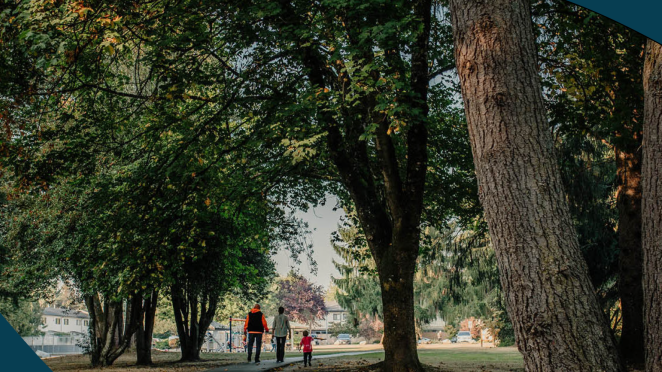The City of Langley has created an Urban Forest Management Strategy (UFMS) to guide the planning and management of its urban forest over the next 30 years.
What is included in an urban forest?
- Forests in natural areas.
- Forest parks, wetlands.
- Trees along streets, in parks, and private yards.
Why is it important?
- Plays a critical role in the culture of Host Nations (The q̓ʷɑ:n̓ƛ̓ən̓ (Kwantlen), Máthxwi (Matsqui), q̓ic̓əy̓ (Katzie) and se’mya’me (Semiahmoo) First Nations) as well as the City’s character and identity.
- Supports wildlife.
- Provides recreational spaces.
- Improves air quality.
- Manages stormwater.
- Enhances the beauty of neighbourhoods.
Langley’s urban forest faces challenges from climate change, such as drought, extreme weather, pests, and diseases. As the city grows, there will be both opportunities and challenges in meeting the goal to "expand and strengthen the existing tree canopy" in the Official Community Plan.
Past Engagement Opportunities
- Online Survey - June 8 to July 16, 2023
- Submit an urban forest place - June 8 to July 16, 2023
- Pop-Up Event at Community Day - June 10, 2023
- Online Open House - June 27, 2023
- Online survey - September 10 to October 31, 2024
- In-person Open House - October 17, 22, and 23, 2024


